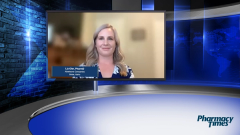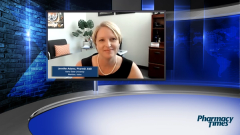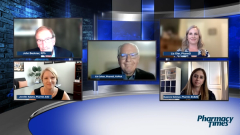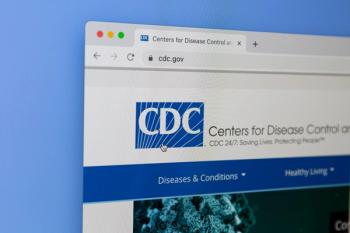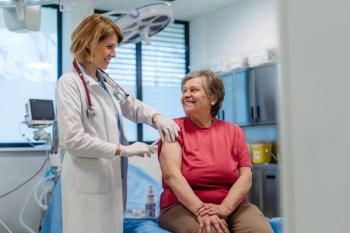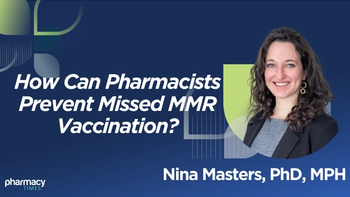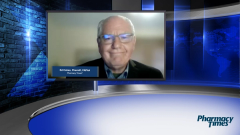
Encouraging Patients to Get COVID-19 And Influenza Vaccinations
Panelists provide tips on how pharmacists can encourage their patients to get their COVID-19 and influenza vaccines this year.
Episodes in this series

Ed Cohen, PharmD, FAPhA: Our patients have made a great leap of faith for the COVID-19 vaccine. How are going to engage with those same patients and say, “It’s time for your flu shot. There might not have been a flu last year”—we’ll get to that topic in a few minutes—“but we want you to protect yourself and your family.” We have some advice on how we can feel better behind the counter. How are we going to take that advice and muster up the confidence we need to give to our patients and get them to embrace the next level of service?
Jennifer Adams, PharmD, EdD: It goes back to those conversations that I mentioned earlier. Even though I’m not practicing in a community pharmacy, I have in the past, so I understand how important those conversations can be and that sometimes, it’s not just 1 conversation. I might not practice all the time, but I’m still the pharmacist to all my friends and family. I’ll give the example of my best friend. She teaches middle school. She thinks she’s immune to probably everything because she’s been exposed to every possible germ out therebecause she teaches middle schoolers. She never gets the flu shot, she never gets the flu, she never gets sick, and she still hasn’t gotten her COVID-19 vaccine. We’re going to continue to have the conversation with her and talk about why it’s important. I’ve been able to debunk some of the myths…about the vaccine. It’s going to take time. The key piece that’s been the most important in conversations with her is, “I care about you. I love you. You’re my best friend, and I want you to be protected. I want you to be safe.”
Not every 1 of our patients is going to be our best friend, and we’re probably not going to love them all, but the message can still be there and can still be consistent. “I care about you. I care about your health, and that’s why I want to be able to share this information.” It’s listening to their concerns, helping them understand what’s real in their concerns and what’s not. Also, helping them see that the reason behind you wanting them to do this isn’t because you want to make money for your company but because you care about them as a person, as a member of your community, and that’s the only way we’ll get there together. As I said, there’s not an easy answer. Sometimes it’s not a single conversation. Sometimes it’s multiple conversations over time, that you have with the same patient, to address those hesitancies. You’re not failing if you don’t persuade them to get their vaccine on the first conversation. You’ll be persistent and continue because we care about our patients and our communities.
Suzanne Soliman, PharmD, BCMAS: I love that. Speaking to the patients, not just as a pharmacist with a white coat who knows everything and is trying to explain the need to get your immunization, we’re trying to relate as a mom, as a dad, or however you want to relate to that person. If you’re hesitant, because we have pharmacists who are hesitant to get the vaccine themselves, share the advice that helped you go through with getting it. It’s important to relate to the patients.
Liz Oler, PharmD: I think too much about what we do for our communities. You might feel like you’re not going to get sick or get the flu, but you’re protecting your kids, your grandmother, your grandfather, your aunt, and the immunocompromised person you may be seeing in your pharmacy practice, for example. It’s a tough line to walk, but if you think outside self, what we do for our communities, and who we protect by getting vaccinated, sometimes it’s helpful reframing it to people to let them see who they’re going to be protecting. I talked about that a lot with COVID-19 vaccination and children. My children cannot get immunized yet. They’re not old enough. But obviously, 1 of the reasons I wanted to be immunized was to make sure that I could get everyone around them immunized, so I could protect them. People are much more willing to get vaccinated if they have a good reason, outside themselves, to make these choices that they may be on the fence about.
John Beckner, RPh: Yes, I agree. One thing that’s come out of the pandemic is that people have started to look at helping one another more. When you frame the conversation—I like the word conversation—you can’t come across as preachy. That’s not going to work. You have a conversation and capitalize on that trust factor. But when you frame it in the context of helping your community and helping others, in addition to yourself, that’s when people start to listen. The other thing I haven’t heard a lot about but is important is trying to improve compliance and adherence. People have to hear the same message from different sources, so maybe you involve other providers in helping you convey that message about why it’s important to get the vaccine.
Transcript edited for clarity.
Newsletter
Stay informed on drug updates, treatment guidelines, and pharmacy practice trends—subscribe to Pharmacy Times for weekly clinical insights.

